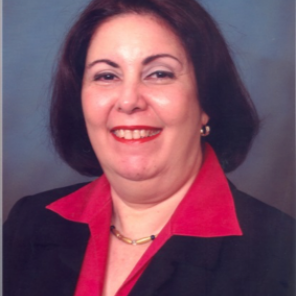
Lydia M. Lopez del Valle, D.M.D, M.P.H is Professor of the University of Puerto Rico School of Dental Medicine (UPRSDM), San Juan, at the Office of Assistant Dean of Research and Adjunct Professor of the Pediatric Dentistry Department. She received her D.M.D. and M.P.H at University of Puerto Rico and was trained on research at the Summer Research Institute of the University of Washington, Seattle. Her research has focused primarily in oral health of infants and children especially on Early Childhood Caries prevention and also on maternal and adolescent oral health. Lopez founded the Puerto Rico Infant caries Prevention Program that works with the oral health of preschool children of the Head Start Programs of Puerto Rico. An IADR/AADR member since 1993, Lopez has served in several scientific committees such as the Constitution, Science Information and the Diversity Committees. Lopez authored many scientific articles in peer review journals and has mentored several dental students, post graduate residents and other faculty members at UPRSDM. She has received several awards for her research contributions from the UPRDM and has been recipient of several grants from NIDCR and NIH. Lopez has also been in collaborations with several national and international universities. Lopez has lectured at national and international level on Early Childhood Caries, International Caries Detection Assessment System and maternal oral health.
How did you first learn about the AADR and what motivated you to join?
I was involved in a research institute at the University of Washington, Seattle. I went there to learn about research and how it is conducted. My mentors Peter Domoto, Phil Weinstein and Robert Berkowitz mentioned to me IADR/AADR and explained to me the importance of the organization and being a member. I became a member in 1993 because I wanted to share my research with other collaborators and researchers.
Can you describe your research? How do you hope your work will impact others?
My research is on Early Childhood Caries (ECC) which is about caries found in infants and children. I also do research on maternal oral health and its relation with how caries affect children’s oral health. I have impacted the research appeal with the first research on caries prevention with the use of iodine povidone in Puerto Rico.
Can you tell a story or give an example of how cross collaboration with other scientific disciplines has been important to your career?
First of all, I have to say I have had very great mentors. They encouraged me to get into this field of research, and with these mentors I have made a lot of collaborations. My mentors introduced me to other researchers in various fields like microbiology to help me understand the bacterium Streptococcus mutans and its relation to ECC. An important aspect of research is having great mentors and people in various science fields to collaborate with.
Can you describe your experience being a researcher from an underrepresented group in science?
I believe it is very difficult to get a grant or get funded due to being a part of the types of disadvantaged groups or ethnic groups in research. Thankfully again for the mentors I have had and worked with it has not been as challenging. I think the universities should work hand in hand with their staff to create opportunities for students to gain mentorship.
Have you had the opportunity to mentor Underrepresented Minorities or work to increase diversity in science? If yes, can you describe your experience and what agencies/organizations you worked with?
In Puerto Rico, we are all minorities. I have had the opportunity to mentor other dental faculty and dental students in research. We have been very successful in maintaining these relationships. Again, I emphasize on the importance of the university being involved and encouraging their students and faculty to gain these relationships. I also think there should be good collaboration with the state as well. We unfortunately do not receive a lot of interest in research in Puerto Rico because it is hard for people to get funding. We have the barrier of the language and experience which prevents us from being able to get funding. These are the issues we face as minorities in Puerto Rico.
Based on your experience, how would you encourage AADR members to help increase the diversity of the research workforce?
To increase the diversity I would encourage that the members attend more trainings and workshops where there is cross collaboration not just at the university level but also at the state level with minority groups. It is a key point to have good mentors and I encourage universities to work with their faculty to create representation to URMs so that they can have mentorship readily available.
What role do you think professional associations can play in supporting its members who are members of underrepresented minority/ethnic groups?
The various professional associations should be sure to host more workshops and trainings so that their members can attend them. Associations should give grants to support the diversity groups, so that they will be able to do their research and also by creating the opportunity for mentorship.




